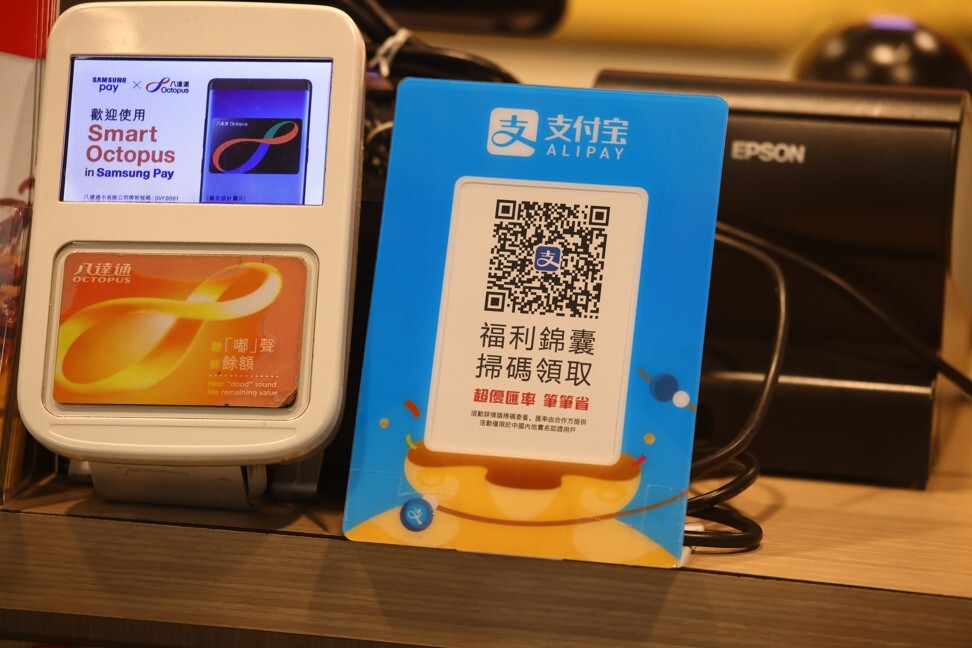
Hong Kong’s HK$5,000 voucher scheme set to open for registration next month, says finance chief Paul Chan
- Residents can sign up for local spending e-vouchers in July, assuming systems testing for the scheme runs to plan, Chan says
- More details relating to registration and payments expected at the end of this month
Financial Secretary Paul Chan Mo-po told lawmakers on Monday the e-voucher scheme – designed to boost local spending and accelerate the city’s economic recovery – was in the final stage of preparation and the government expected to announce details, such as on the sign-up process and payment methods, at the end of this month.
Hong Kong’s HK$5,000 voucher scheme set for summer launch as providers chosen
“We are now conducting systemic tests with the four service providers and other partners to ensure that the registration and voucher distribution processes are running smoothly,” he said at a Legislative Council panel meeting.
“If the testing outcome is satisfactory, we’ll announce the scheme details at the end of this month … We expect the scheme to be open for registration in July.”
Four electronic payment service providers – AlipayHK, Octopus, Tap & Go and WeChat Pay HK – have been chosen to operate the programme.
It will cost the government an estimated HK$36 billion, of which HK$600 million covers administrative expenses.
The government originally planned to issue them in five stages over as many months. However, authorities have so far not stated the exact expiry date for each instalment.

Ahead of the scheme’s launch, Octopus said new customers who between June 1 and August 31 transferred their physical cards to iPhone or Apple Watch devices and made a payment would be entitled to HK$100 in top-up value. Those who simply signed up for a new Octopus card on those devices and made a transaction would be entitled to HK$50.
With Hong Kong’s economy gradually rebounding as the Covid-19 crisis eases globally, Chan maintained the government’s projection for full-year economic growth at between 3.5 per cent and 5.5 per cent, compared with last year’s 6.1 per cent decline – the worst on record.
“If the pandemic continues to improve, we can expect this year’s economic growth to hit the upper range of our forecast,” he said.
The economy expanded by 7.9 per cent in the first three months of this year, the city’s biggest jump in quarterly growth in 11 years thanks to a significant increase in exports, while local retail rebounded with a 20.1 per cent year-on-year increase in March.

In an earlier interview with Chinese state broadcaster CCTV, Chan said he believed the worst was over for the economy.
“Looking forward, I am quite optimistic. I believe Hong Kong’s economy has bottomed out,” he said.
“As long as we keep doing a good job containing the pandemic, we can open our borders and resume international travel. Then our retail and tourism sectors could register growth as desired.”
However, he warned the local economic recovery was still uneven, given the coronavirus pandemic continued to weigh more heavily on some sectors, particularly those related to tourism.
Expiry date for HK$5,000 digital vouchers may be extended to Lunar New Year
To help address the government’s estimated deficit of HK$101.6 billion this financial year, lawmaker Michael Luk Chung-hung, of the Federation of Trade Unions, asked if Chan would consider imposing an extra 2 per cent of corporate tax for “super-rich” conglomerates earning annual profits of more than HK$1 billion.
Chan, however, said a consensus should be reached in the community before the government could consider such a move.
“When we examine different taxes, we need to consider them as a whole and it is difficult to just look at one single item,” he said.
“When we review the city’s taxes in the future, naturally this will be one of the options to be considered. But we need to offer different options for the public to examine and form a mainstream view.”

